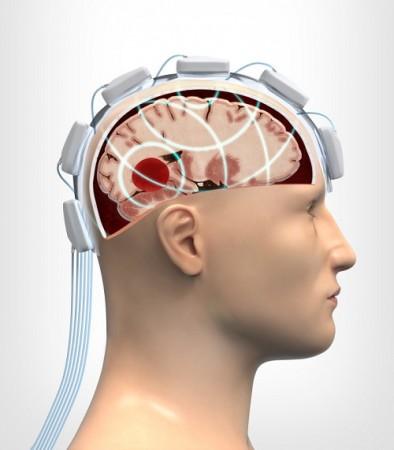
Scientists have developed a device that can help diagnose strokes much earlier than the methods currently available.
The helmet-shaped stroke finder that uses microwave signals works by examining brain tissues and can give results within seconds, according to the study published in the Transactions on Biomedical Engineering journal.
The innovation is based on the initiative taken by a team of researchers from Sweden. Researchers from Chalmers University of Technology, Sahlgrenska Academy and Sahlgrenska University Hospital have already tested their product on 45 patients and have found it highly promising in discriminating strokes caused by bleeding from those induced by a blood clot.
Encouraged by their findings, researchers are planning to install a mobile stroke helmet on ambulances.
"Our goal with Strokefinder is to diagnose and initiate treatment of stroke patients already in the ambulance," Mikael Elam, professor of clinical neurophysiology at Sahlgrenska University Hospital, said in a news release. "Since time is a critical factor for stroke treatment, the use of the instrument leads to patients suffering less extensive injury. This in turn can shorten the length of stay at hospitals and reduce the need for rehabilitation, thus providing a number of other positive consequences for both the patient and the health care system."
The ground-breaking invention is expected to help improve stroke treatment. "The results of this study show that we will be able to increase the number of stroke patients who receive optimal treatment when the instrument makes a diagnosis already in the ambulance," Mikael Persson, professor of biomedical engineering at Chalmers University of Technology, said. "The possibility to rule out bleeding already in the ambulance is a major achievement that will be of great benefit in acute stroke care. Equally exciting is the potential application in trauma care."
During a stroke, blood supply to the brain gets interrupted, affecting the normal supply of oxygen and nutrients to the brain, thus damaging brain tissue. Data from the World Health Organization (WHO) shows that nearly 15 million people suffer from stroke every year and it kills five million people and disables another five million. In India, about 1.5 million people are affected with strokes every year.
Following are some symptoms associated with strokes as provided by experts from Mayo Clinic in US:
- Problems with balancing while walking
- Confusion or trouble in understanding speech
- Experience numbness or paralysis in face, arm or leg
- Impaired vision
- Experience severe headache, followed by vomiting, dizziness
Some Factors that increase Risk of Strokes:
- Obesity
- Lack of physical activity
- Addiction to alcohol, drugs
- Hypertension
- Smoking
- Suffering from diabetes
- Heart problems
- Sleep disorder obstructive sleep apnea








